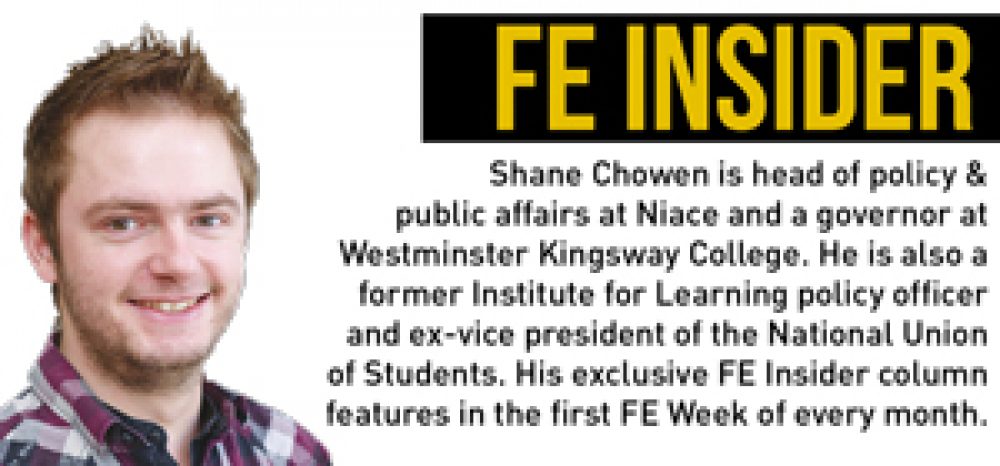I read a blog the other day that talked about how there was so much political consensus around in our sector at the moment and how this was a ‘job done’ for the sector’s PR and lobbying efforts.
The evidence for this was a skills hustings event where representatives from the Conservatives, Labour and the Liberal Democrats basically agreed with each other about everything.
After reading this blog, I found myself with a nagging feeling somewhere between disbelief and frustration.
So as the General Election campaign finally comes to an end and we gear up for a new parliament, now seems a good time to get this off my chest. Further and adult education is deeply, deeply political, if not, at times, party political, and we must not be lulled in to a false sense of security just because all parties say that apprenticeships are a good thing.
An observed consensus like this might give the impression of party political consensus, but that says more about the quality of debate than anything else.
So how to raise the quality of that debate? To me it means being honest about the politics of further and adult education, given, the sound-bite to-ing and fro-ing of a General Election campaign in this climate often doesn’t lend itself to the ‘deep and meaningful’ kind of debate I’m arguing for.
In hindsight, I think we have to learn lessons from the cut to funding for 18-year-olds last year, how the sector responded and why we were, ultimately, unsuccessful. And it’s the same with the 24 per cent cut announcement
But without it, as a sector, we run the risk of becoming complacent; accepting and supporting government policies that we know in our hearts are not good enough.
Our sector has a proud history in political movements. Many FE colleges can trace their origins back to workers’ education and trade union movements. To this day they attract and educate working class learners in deprived communities, as well as migrants and, albeit in alarmingly and drastically declining numbers, older people.
So when our core constituency are mostly the poor and we view our collective mission to be about social justice, equality and society, then we become deeply ingrained in the politics affecting people’s lives.
We’re pretty well versed in reciting the social return on investment of FE but I think we can be better at talking about the difficulties and barriers people without advantage and privilege have to overcome in order to navigate through the education system.
The notion that someone can’t afford the fees to do a part-time course at a college for example is one that most people can grasp, but I think we can be much more real and honest about the other barriers we know that some of our learners come up against that students from wealthier backgrounds don’t.
In hindsight, I think we have to learn lessons from the cut to funding for 18-year-olds last year, how the sector responded and why we were, ultimately, unsuccessful. And it’s the same with the 24 per cent cut announcement.
Were we really vocal enough about the cumulative impacts that government cuts had already done to poor people’s life chances? Did we say enough about the disproportionate impacts on people from black and minority ethnic backgrounds, older people or people with mental ill health, for example, and how by reducing the resource we have to provide education and training for a group with the odds already stacked against them?
I think this is really important if we want to improve the quality of policy in our sector. Policy-makers make all sorts of assumptions about the learners that you work with, their backgrounds, their social capital, and their access to support, which are probably wrong.
So next time there’s an opportunity to influence policy and there are potential impacts on access, retention, achievement, wellbeing or progression, let’s not be afraid to be honest about the politics of and its inherent inter-relationships with poverty and equality. Consensus isn’t always a good thing.



Your thoughts